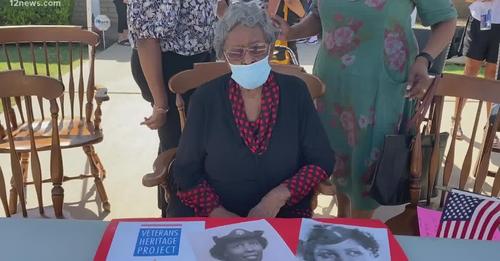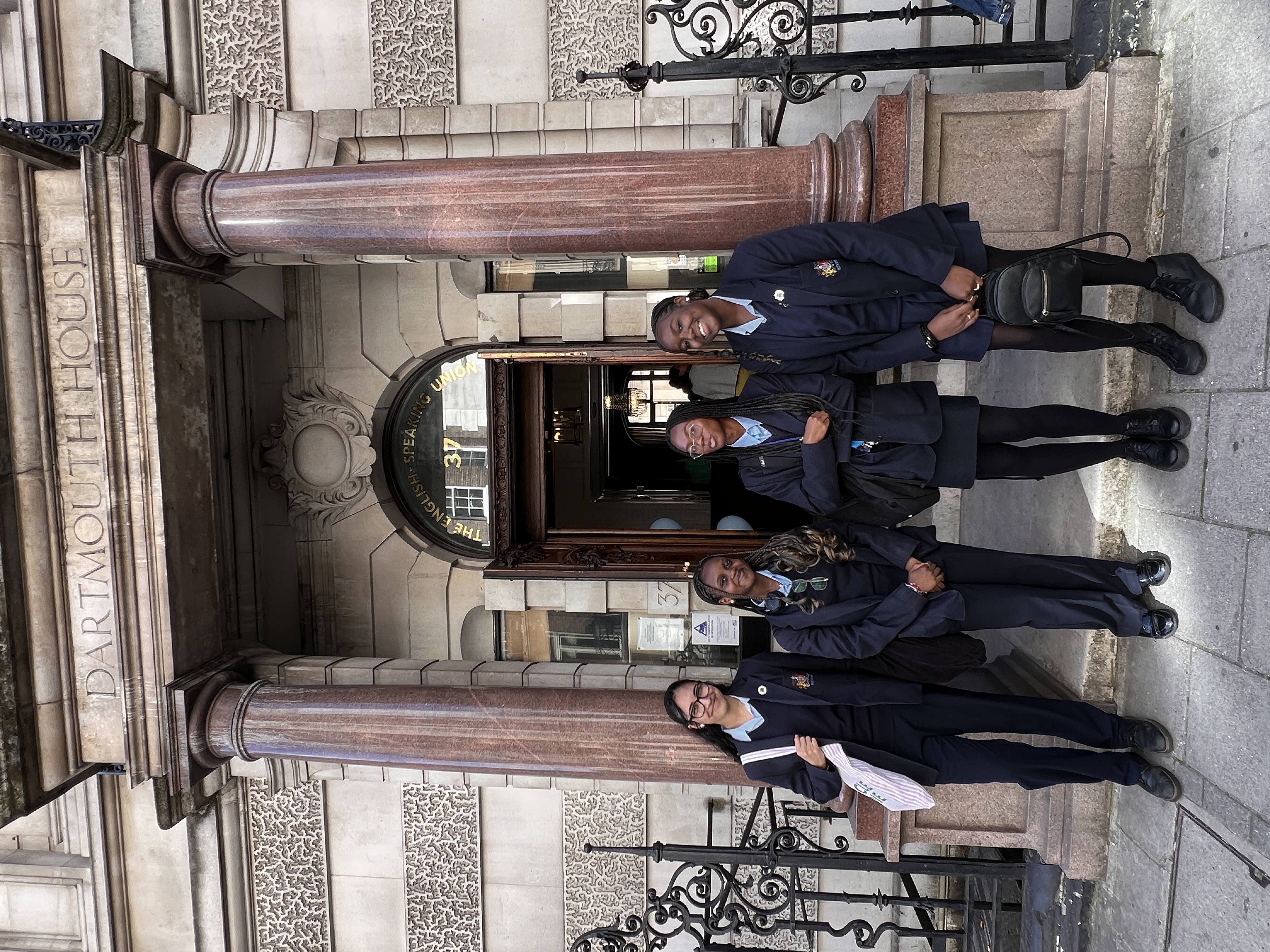As part of Black History Month this October, we have delved into our archives to celebrate and learn more about inspirational black figures from across the Foundation. Here we look at the 6888th Central Postal
Directory Battalion.
In October 1939, King Edward’s School temporary buildings and playing fields were requisitioned by the War Office, being used by the British and American armies for the duration of the second world war.
The six triple eight, as the Battalion was known, was the first and only all black female unit to be deployed overseas during World War II, consisting of 855 women under the command of Major Charity Adams the highest-ranking black female in the US Army during World War II.
It was - and still is - terribly important for troops serving abroad to hear from loved ones, so the backlog of post was a serious issue for the US army.
The primary mission therefore of the 6888 was to sort and re-direct mail to US personnel in Europe. In fact, the motto of the 6888 was “No mail, low morale”, and with a war to win, the generals needed this backlog of letters to be redirected urgently.

The 688 travelled to Europe in three waves:
1. Major Charity Adams, the Battalion's Commander and her colleague, Captain Noel Campbell, the Battalion's Executive Officer flew to Europe at the end of January 1945, landing in Scotland before heading to London.
2. Shortly afterwards on 3rd February 1945, the first contingent of the 6888 sailed on board the Ile de France, from New York to Glasgow, encountering German U-boats on the way. Accompanied by an armed convoy of ships, the battalion arrived in Glasgow on 11th February, met by bagpipe music.
3. 50 days later, the second contingent arrived aboard the Queen Elizabeth. This time there was no welcoming committee; the women had to wait until they arrived in Birmingham for that!
Adams and Campbell were the very first black WAC officers to arrive in Europe and the two women selected rooms for offices, separated the battalions into companies, make sure that beds were available for the unit and that the mess hall was sufficiently stocked with food and utensils. Plumbing and electrical work was organised and telephone lines installed – along with other numerous logistical and administrative tasks, incluiding decorating the dining hall with welcoming signs, just in time for the batallion’s arrival.
The women travelled by train from Scotland to Birmingham, and several women recorded their first thoughts of the British countryside: Lucia Pitts recalled:
“It was a first impression never to be forgotten. The farmlands looked lush and green…everything was laid out so neatly and precisely, with trim hedgerows separating the plots…the land looked so clean it seemed it had been swept by a broom.”
Members of the 6888th were the first black women seen by many Birmingham people. Frances Johnson said: “It seemed that they had never seen black women before in their lives.” Curious, friendly, warm and hospitable is how the people of Birmingham were described by members of the battalion.
Many of the women described the working condition as poor, excacerbated by the conditions associated with the war. Lighting was very poor (windows were blacked out – many women suffered from eye strain), space was limited so mail clarks had to work on 8 hour rotating shifts and it was very cold so women worked in ski trousers and field jackets.
The women accomplished the incredible task of delivering mail to 7,000,000 servicemembers. Working three shifts per day, they processed approximately 65,000 pieces of mail per shift. In May 1945 the 6888th was assigned to Rouen. The temporary buildings at King Edwards were demolished in Spring 1958.
September 22nd 2021 saw Major Fannie McClendon of the 6888th Battalion turn 101! She is one of only seven known survivors of the batallion.
The National World War II Museum in New Orleans have featured an article on the 6888th Battallion, focussing on the recent discovery that 14 of the women have a final resting place at America’s most hallowed grounds, Arlington National Cemetary.
Read here.










